TITLE: ISLAM AND MODERN VICES, ISSUES AND CONCERN IN THE NEWS
AUTHOR: RASHEED ABUBAKAR
PUBLISHER: RASHIELD COMPANY, LAGOS, NIGERIA
YEAR OF PUBLICATION: 2018
REVIEWER: PROF ABDULRAZAQ O. KILANI
PAGES: 110
THE MEDIA: FRIEND OR FOE?
The media since its emergence has continued to play a very pivotal role in information dissemination and it has been a fact of human development that anyone who downplays the role of the media does that at his or her own peril.
In this respect, Mark Twain observed that, ‘when it comes to the news media you have two choices. You can ignore it, and be uninformed. Or you can pay attention, and be misinformed’.
The compilation of essays by the columnist and author which culminated in the book Islam and Modern Vices, Issues and Concern in the News, is the series 4 in that noble endeavour by the author.
The series of books by the author are meant to change the negative perception of Islam and Muslims especially in the Media.
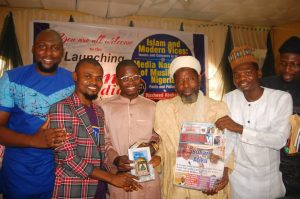
There is no doubt that those who have followed the author in the earlier series will agree with me that he is making significant in-road in changing the poor narratives about Islam, the Muslims and Islamic institutions.
The nature of human kind and spirituality demonstrates that even where there are economic and political posterity, many people find meaning to their lives from Region and in the same token, countries with socio-economic woes and political uncertainty are noted to have gone to religion to find more meanings to their lives.
The situation we find ourselves today in Nigeria has erected a culture of politicization of religion and religionization of politics. In a simple way, Nigeria is a nation divided by ‘god’.
Islam is one of the biggest story in the media and in most cases such stories are misrepresentation of Islam and they are about scapegoating the Muslims.
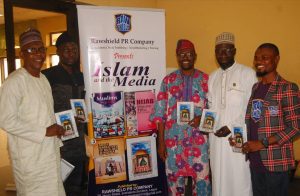
Many journalists in Nigeria appear to have taken Twain statement that ‘First get the facts. You can distort them later’ as their foundational principle while dealing with Islam and Muslims.
There are those who struggle to get the fact and spontaneously distort it and there are those who are not interested in the fact at all but already had a pre-conceived and jaundiced position about issues pertaining to Islam and quickly distort such information and place such for public consumption.
This is the root cause of the hate speeches or Islamophobic tendencies in the media information we consume on daily basis.
The disservice of the media to religion globally is the fact that most media relegate the religious beat to the background. They fail in most times to recruit people with religious tool that understand religious metaphors for their reportage.
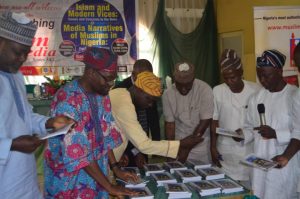
Religious beat are often given to those who are very new in the profession to develop them to become star journalists. This is the root cause of the sensational stories we often find in the media about religion.
THE BOOK REVIEW
In book review, there are critical and descriptive models. For the purpose of this assignment before me, I am adopting a descriptive model for the review of the book ‘Islam and Modern Vices, Issues and Concern in the News’.
The book is a product of weekly articles that feature in the author weekly Islamic column called AL-FAHM in Daily independent.
There are fifteen essays, which make up the twelve chapters and three appendices of the book.
The author of this work has been involved in Islamic advocacy in the media and the product of the advocacy has given birth to two book series on Islam and the media, titled: “Muslims and the Threats of the Media” and “Hijab and the Nigerian Press”.
The series of book by the author focusing on Islam and the Media offer the ummah important opportunities; for greater religious literacy in both media and politics; a better understanding and representation of religion in media coverage of news, the priority of religion as a prime motivator of individuals and communities and above all they help to institutionalize the culture of diversity in media representation of religion.
The author has written more than 70 well-researched articles, which addressed mind-boggling socio-cultural, political and religious issues within the Nigerian and foreign ecosystems. The fifteen essays which form the contents of this book were taken from the over 70 essays in the column.
PURPOSE
The focus of the book is on modern vices as reported in the media, from the Islamic perspective. The media both print and electronic media and the now ubiquitous social media are all awash with stories of vices everywhere around us.
The intervention of the author with this book is to make a proper Islamic appraisal of the worrisome involvement of religious institutions and functionaries in such modern vices. The author states:
The porosity of our society to crimes and vices, ranging from corruption, terrorism, indecent dressing, vulgar lyrics in music and influence of drug abuse, among others, is alarming. These have eaten deeply into every aspect of human endeavour,…The vices are not just happening by accident. They are results of man’s deviation from Allah’s divine guidance(p.ii).
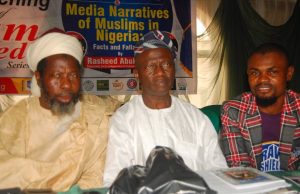
The struggle for humankind to live good and righteous life and overcome the various trappings that derail humanity has been set from inception in the struggle between Adam (AS), the progenitor of human race and Shaytan(the devil). It is an eternal confrontation between righteousness and falsehood, good and evil, light and darkness, faith and unbelief and justice and injustice.
What the book sets to achieve is to put humankind on the path of following the guidance of Allah, the Lord of the worlds as against following the vain desires of humankind through which Shaytan decorates evil as good, injustice against a religion as freedom of religion, adoption of jungle justice against the justice and clemency of Shari’ah, nudity versus the adornment of hijab, corruption in business and governance as against transparency and accountability (hisab) of Islamic governance.
The author’s hope is for the book is to trigger an avalanche of discourse on the deployment of Islamic teachings and principles in solving human problems.
THE THRUST OF THE BOOK
The concept of Justice resonates all over the book. Justice is the pillar upon which human society is established and when it is absent, the society is riddled with corruption and oppression.
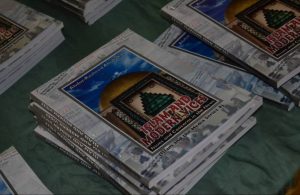
The situation becomes chaotic when various institutions that lead to attainment of justice like the police, the judiciary, legal officers and even the media become corrupt and the people resort to self help and jungle justice.
The media report on daily basis ‘vigilante justice’ meted to people in many places in Nigeria. The case of Aluu4, an event that took place on October 5, 2012 very near an Ivory Tower in Port Harcourt attracted the attention of the author and other forms of self help employed in other parts of the country.
The preponderance of self help by people explains how humanity has been degraded and how our education offers little or no value to the recipient. It is C.S. Lewis who said, ‘education without moral values makes a person a clever criminal’.
The gruesome killing of four undergraduates of University of Port Harcourt (see chapter 1) for whatever reason explains the profanity of human life today. The failure of government to equip the police adequately is the preponderance of vigilante groups in many states and the enthronement of vigilante justice of brutal murder of citizens.
Nigerians were seen in the gory video of the killings watching with amusement, instead of using the phone to call appropriate authorities for help, they were busy recording the agonies of the four students breathing their last air. The author summed it up:
The culprits of jungle justice or extra-judicial killing must be shown how not to take laws into their own hands. Their unlawful acts should not be treated with kid gloves, as they are real criminals and murderers (p5).
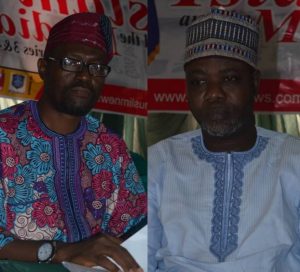
The author discussed the menace of terrorism in five chapters which indicates that the menace of terrorism bothers the mind of the columnist and he devoted many weeks to address it.
Terrorists are not born but they are made. Terrorists are made by unjust system in the allocation of resources. Terrorism is incubated by the lack of access to basic necessities of good life due to absence of good governance.
Our lives have been inundated by terrorist related violence ranging from kidnapping and banditry by non-state actors like MEND and Avengers in the Niger Delta, MASSOB and IPOB in the South eastern axis of Nigeria, Kalakato, Yan Tauri, Kalari and Yandaba in many states of the North and the greatest of them all, the Boko Haram and Islamic State of West Africa insurgent activities laced with suicide bombing and the deployment of IEDs. It is the position of the author that ‘peace and tranquility cannot reign where there is injustice’(p.15).
The Ozubulu church massacre in Anambra state (see chapter 5) also x-rayed in the book is a case of how the house of God was invaded and desecrated by drug merchants who are equally merchants of death. But who provided them the opportunity? The corrupt clergymen romance with the so-called rich people is a worrisome development in Nigeria.
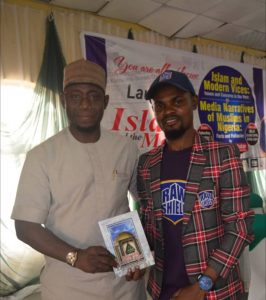
The pulpits have been desecrated by blood money and hence the invasion of the church by drug barons fighting for supremacy when they gunned down unsuspecting worshippers with bullets.
The event at Ozubulu on Sunday August 6, 2017, sent twelve worshippers to their graves. It is a mockery of religion for a house of God to be built with blood money.
Corruption is endemic and it is now a monster and the author noted corruption was responsible for many military coups in Nigeria(p17). Corruption is the abuse of entrusted power for private gain. Corruption is also the conduct that adversely affects the honest performance by an officer (public or private) or body of their functions. Nigeria development has been derailed by corruption and this has made our country a laughing stock in the international community.
The country rating by Transparency International makes the country to be tagged as ‘fantastically corrupt’. The author calls on religious leaders to be in the fore front of the struggle to end corruption in Nigeria. The poser for us now is how ready are religious leaders in tackling corruption? The religious institutions and functionaries are major beneficiaries of stolen wealth from corrupt political elites in the name of blessing or spiritual cleansing!
Change is a constant factor in human life. Human beings are always not satisfied with a way of life they are used to for sometimes. The constant quest for change in diets, attires, architectural design, taste of cars and even in the way we look as humans is being touted in religious circles. Religious teachings are being crafted and altered to meet the desires of humankind in the guise of modernisation.
Islam is not against progress in human well being. It approves of scientific discoveries to enhance quality of life but does not extend such alterations to its doctrines and ways of worship. This is one of the challenges Islam is facing today.
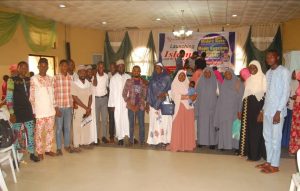
Humankind struggles to bring up a custom-made beliefs and doctrines. Islam says instead for human being trying to change Allah’s injunctions to suit their whim and caprices, human beings are the one that need to change themselves to suit the directives of the Law-maker, for that is the meaning of Islam; submission and surrender to Allah.
This is why a gay- Imam or a gay mosque or female Imam or unrestricted mixing of sexes in the name of gender parity is not fashionable across the Muslim world in view of the media efforts to foist such ‘progressive’ agenda on the Ummah.
The author in his exposition of Islam advocates for hijab for women as a God given instructions and wonders why the negative portrayal in the media. Islam according to the author ‘ doesn’t restrict women or deny them of their rights’ as the ummah has produced ‘ many women who are jurists, very sound in the recitation of the noble Qur’an and their (sic) knowledge of Ahadith (saying of the Prophet), seerah (Islamic history)’(p10).
The failure of Muslim female elites to adorn the hijab the author posited is responsible for the assault of younger Muslim females who are conscious of using the hijab do receive in schools, offices and in social gatherings (pp37-38).
The seriousness of the issues discussed in the book did not distract the author from providing a space for the shenanigan of the former Governor of Ekiti state in a chapter titled ‘Ayodele Fayose’s Unholy Romance With Ekiti Muslims.’
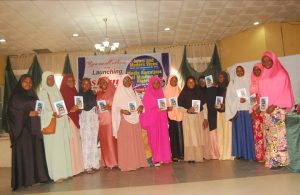
Ayodele Fayose was the apostle of stomach infrastructure who piloted the affairs of the state between 2014-2018. He was reputed to have thrown decency into the dustbin as he patronized many local food joints in Ado Ekiti to eat his famous ponmo(cow skin).
Fayose extended his shenanigan to the Muslims of Ekiti State when he stormed the Ado Ekiti Eid praying ground on Friday, September 1, 2017 in full Islamic regalia – with a turban and a tesbih (rosary) to match – and joined thousands of Muslims to observe the Eid-el-Adha prayer (p40).
The author lamented and viewed it as a flagrant violation of Islamic rulings and etiquettes of the mosque as well as the Eid ground by the Governor. The Muslims leadership in the state appeared to have been infected by the stomach infrastructure largesse of the Governor.
The book is not about social vices and the shenanigan of the political elites alone as it offers the readers the Islamic model towards a better society.
The model provided is encapsulated in the conscious efforts being made by organizations like the Guild of Muslim Professionals in the Media, MSSN and TMC.
These organisations and many others have invested in programmes to empower the ummah and the youth in particular. This is the right step in accelerating a systematic recruitment of Muslims and youths in particular who are sound both in Islamic personality and mentality.
MY ASSESSMENT
A work of this kind is to me is a round peg in a round hole and it is a milestone in ensuring that the media play crucial roles in interfaith harmony.
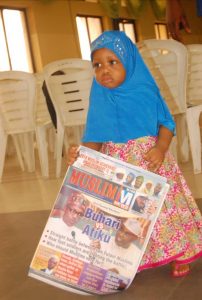
This work no doubt expands our understanding of the nexus between religion and the society. The two are not mutually exclusive but partners in progress for ONE humanity. Barney Zwartz (2016) wrote:
Religion reporting has several issues in which it was important to have a specialist, someone who could bring some perspective beyond the scandal of the moment and understand the context.
Islam deserves a better treatment in the media. It is a civilisation of many centuries; Islam is a faith profess by over 1.6 billion. It is the fastest growing religion in the world.
Islam is the last man standing in global spirituality as others have capitulated to the forces of greed and worldly materialism. Islam has offered the Nigeria public space quality education, social welfare and above all intelligent and peace-loving people.
It is my conviction that this book is a good resource in understanding the interrelationship between Islam (religion) and the media. It is a good material not only for media practitioners but to all students of knowledge. Just like the noble Prophet Muhammad said in one of his sayings, ‘convey from me even if it is a verse’.
I enjoin you all to pick even if it is a copy of the book to our various schools, Libraries of our mosques and for family study circles.
Thank you!

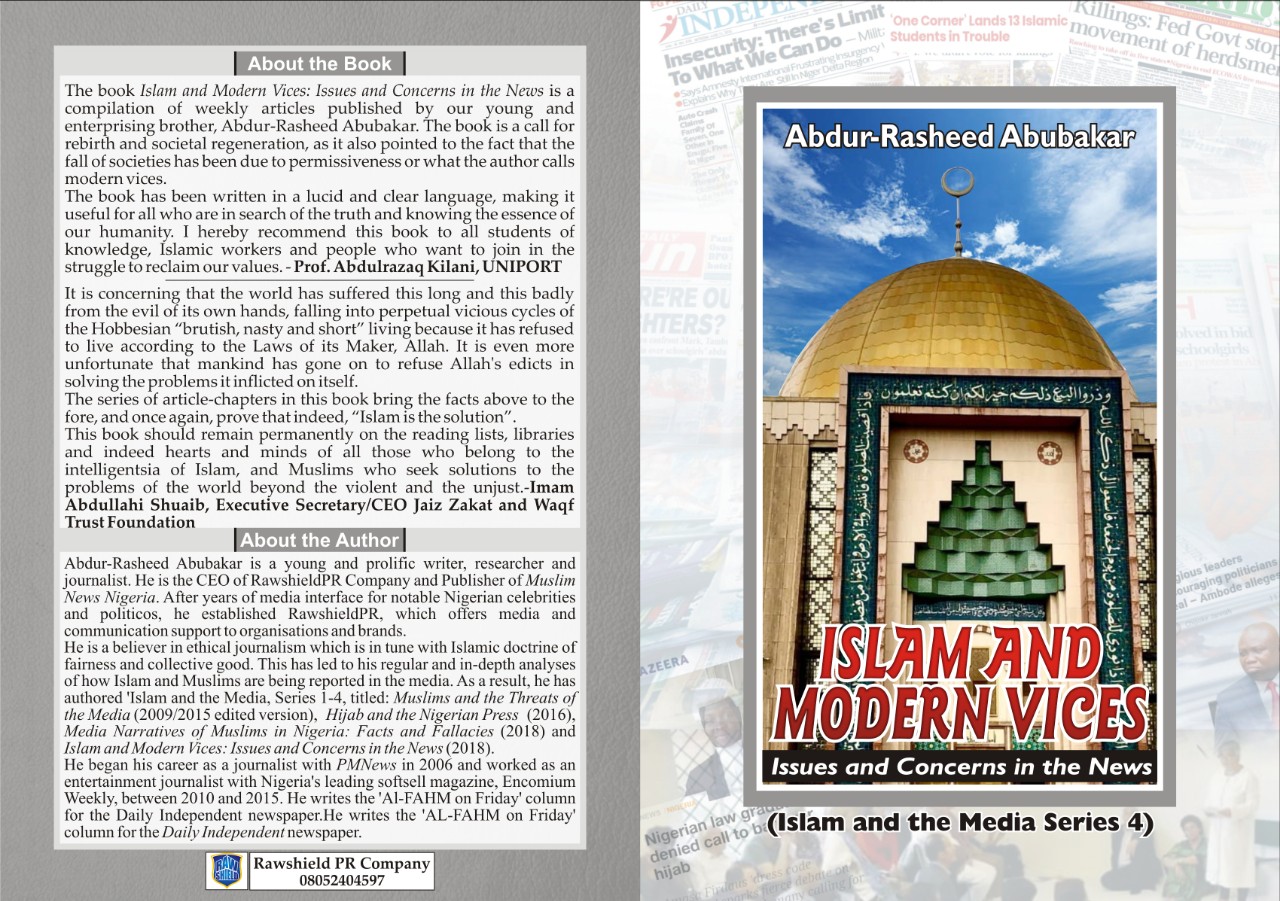
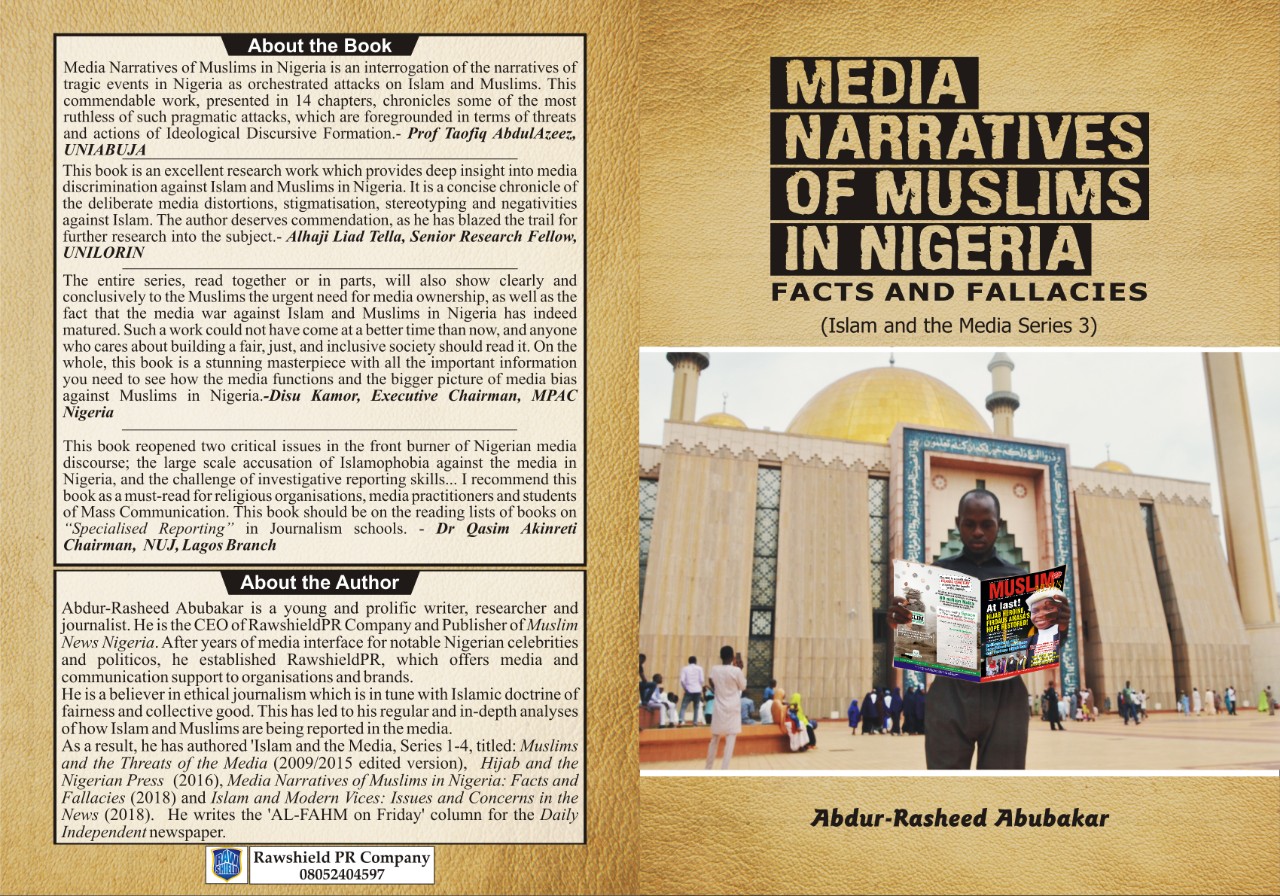

Comments 1